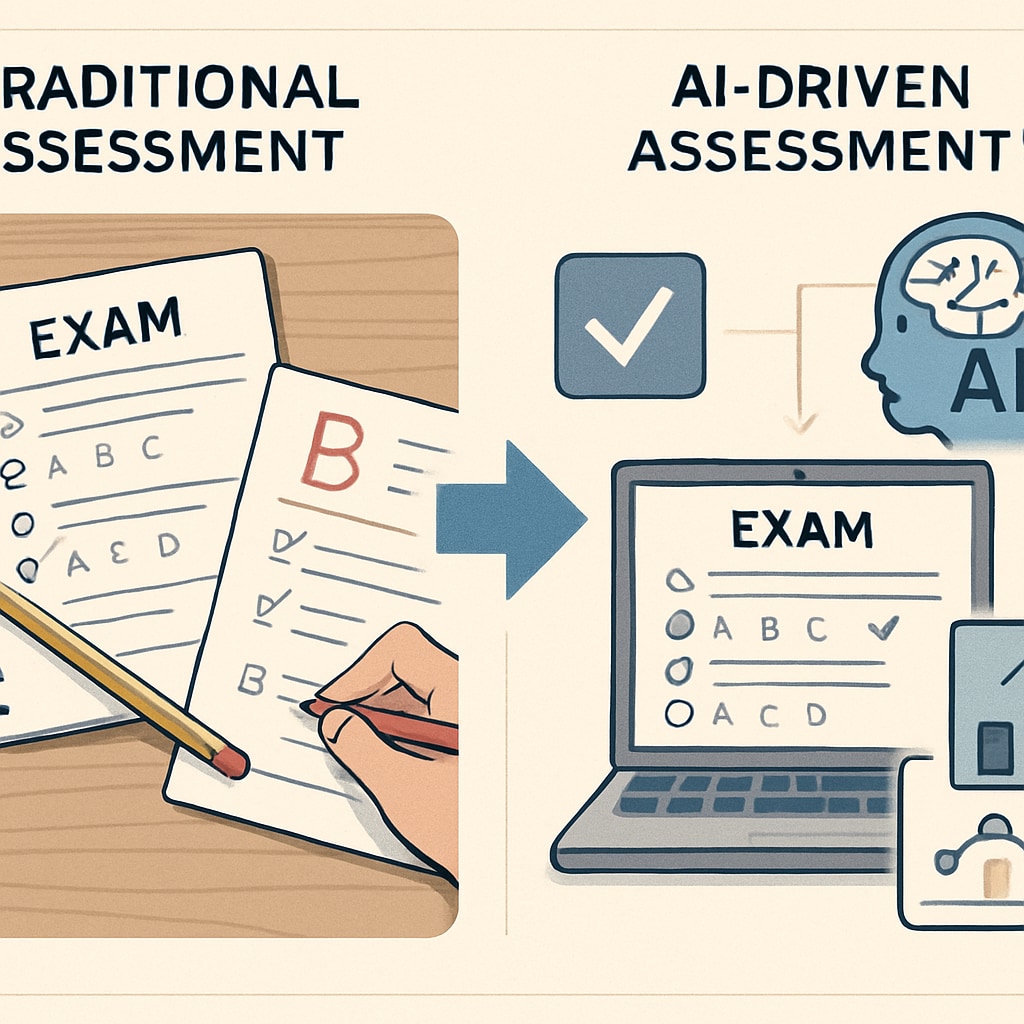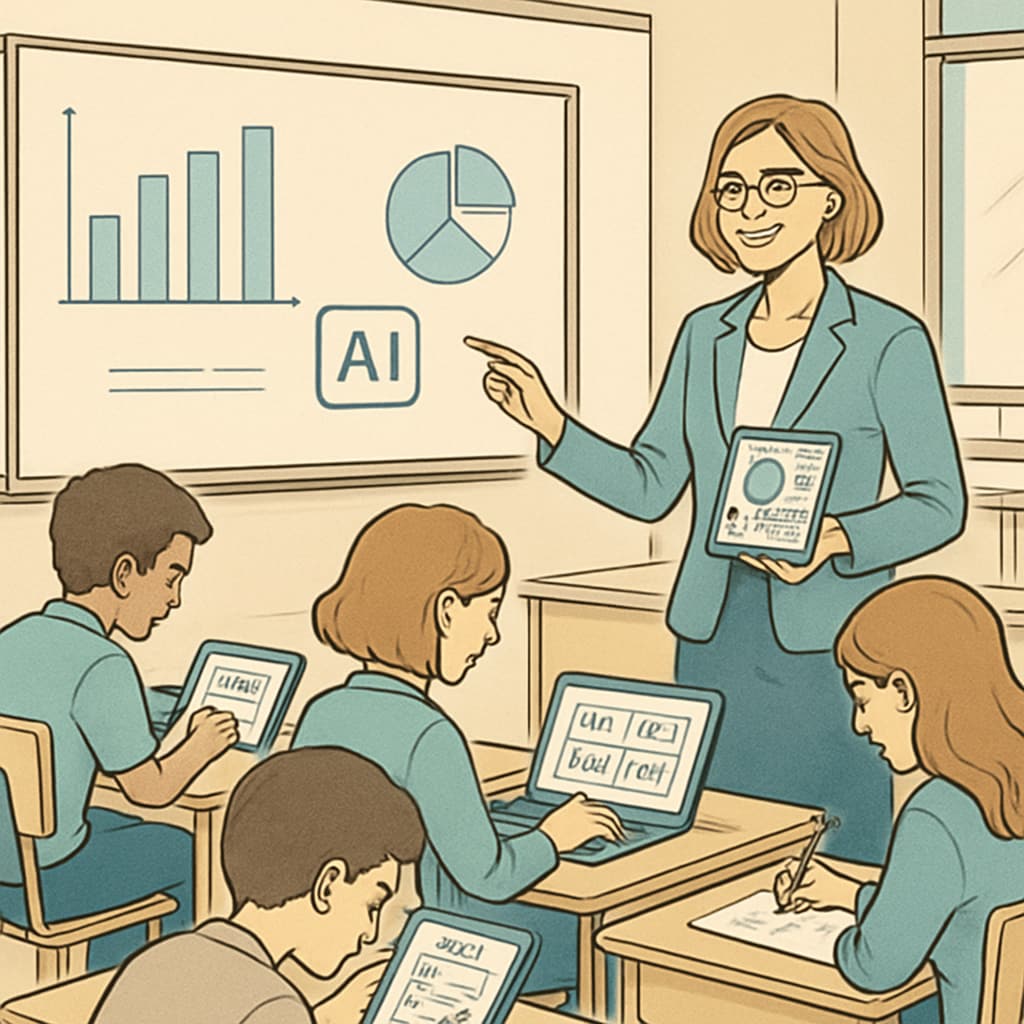The rise of artificial intelligence (AI) is transforming nearly every aspect of society, including education. In the realm of K12 education, AI is pushing traditional competitive exams into the spotlight, exposing their limitations in talent selection and evaluation. As a result, the need to reform these systems has become more urgent than ever. This article delves into the shortcomings of traditional exam models and proposes a pathway forward to better align educational assessments with the demands of the AI-driven era.
Why Traditional Competitive Exams Fall Short in the AI Era
Competitive exams have long been the cornerstone of talent selection in K12 education. However, their standardized nature often fails to account for diverse learning styles, creativity, and problem-solving abilities—qualities increasingly valued in an AI-enabled world. For example, while these exams excel at testing rote memorization and procedural knowledge, they rarely assess critical thinking, adaptability, or emotional intelligence.
Moreover, AI tools such as generative algorithms and machine learning models have made it easier for students to access advanced resources, inadvertently highlighting disparities in educational access. This further exacerbates the inequality inherent in traditional testing frameworks. A growing body of research supports the argument that exams need to evolve to measure a broader range of competencies. Educational assessment on Wikipedia elaborates on this shift in focus.

Reimagining Competitive Exams for Diverse Talent Selection
To adapt to the AI era, competitive exams must embrace new methodologies that go beyond standardized testing. Innovative approaches such as project-based assessments, collaborative problem-solving tasks, and real-world simulations can provide a more comprehensive understanding of a student’s abilities.
Additionally, AI itself can play a transformative role in this evolution. For instance, adaptive learning platforms powered by AI can personalize assessments to match a student’s unique strengths and weaknesses. Instead of a one-size-fits-all approach, these platforms could dynamically adjust the difficulty level of questions based on real-time performance data, ensuring a fairer evaluation process.
Another compelling idea is incorporating AI into grading and feedback mechanisms. AI-powered tools can analyze essays and open-ended responses for creativity, coherence, and critical thinking, providing more nuanced insights than traditional scoring systems. Artificial Intelligence on Britannica highlights how AI is revolutionizing education by fostering personalized learning experiences.

Challenges and Opportunities in Implementing Exam Reform
While the potential benefits of reforming competitive exams are immense, the transition is not without its challenges. For one, there is a need for significant investment in technology and teacher training to effectively integrate AI into educational settings. Additionally, policymakers must address ethical concerns such as data privacy and algorithmic bias to ensure equitable outcomes.
However, the opportunities far outweigh the obstacles. By leveraging AI and alternative assessment strategies, educators can create systems that not only recognize diverse talent but also prepare students for the complex, interdisciplinary challenges of the modern world. Such systems can bridge the gap between traditional academics and the practical skills demanded by AI-driven industries.
The Road Ahead: Building Inclusive and Future-Ready Exam Systems
Reforming K12 competitive exams in the age of AI is not just a necessity—it’s an opportunity to redefine how we identify and nurture talent. By embracing innovative assessment methods and AI-driven tools, we can create a more inclusive and equitable educational landscape. For education decision-makers, this is a call to action to rethink outdated systems and prioritize the holistic development of students.
As AI continues to evolve, so must our approach to education and talent selection. The future lies in examinations that inspire creativity, foster collaboration, and prepare students for a world where adaptability is key. Let us seize this moment to reshape the future of education.
Readability guidance: Short paragraphs, active voice, and transitional phrases have been used to enhance readability. Lists and examples illustrate key points, while external links provide authoritative context.


